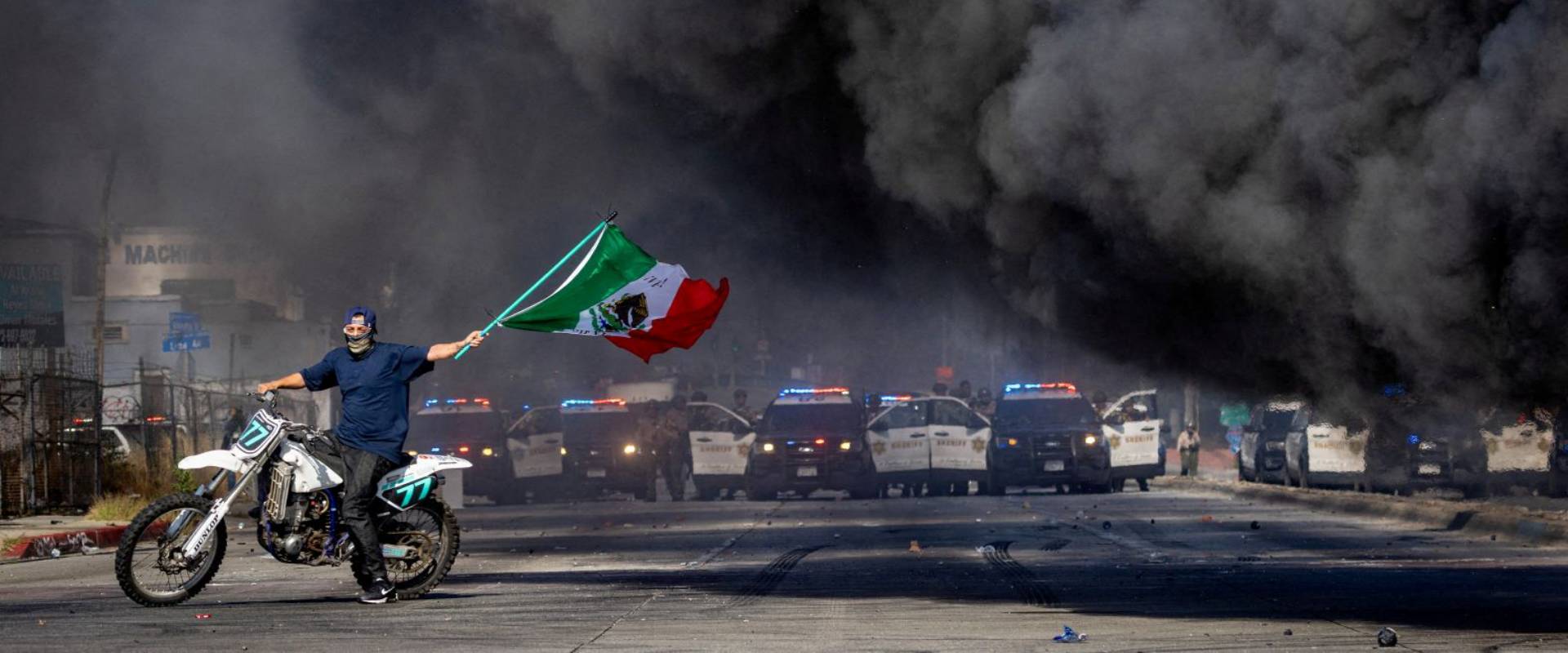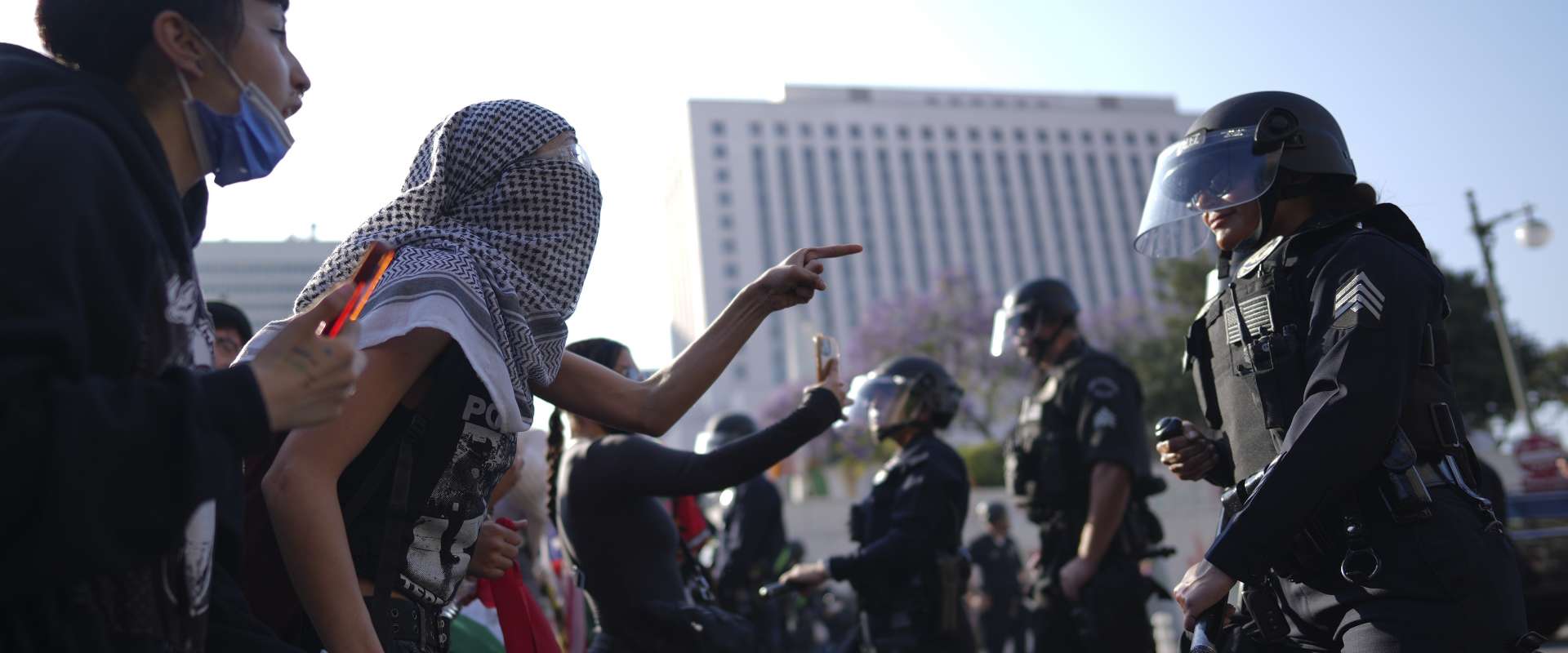My radicalization began with my time in the military. I served 10 years as an army infantryman. The simplest job description for an infantryman is someone who engages in ground combat.
I grew up a poor trailer-trash kid from a small town in Wyoming. As soon as I graduated, the global financial crash of 2007 hit, and there wasn’t much opportunity other than the oilfields and coal mines. Since the military holds healthcare and education hostage, it was the only option for getting out of that small-town life.
I now know, almost 20 years later, that I was economically conscripted. My economic status made me perfect prey to feed their machine. When I joined they literally said they needed “bullet catchers.” Then-president George W. Bush’s war plan at that time, commonly known as “the surge,” required an extra 20,000 troops to deploy to Iraq, and I became one of them.
The dehumanization of imperialist war
Right away, I learned a lesson: that the military devalues human life, regardless if you’re a soldier or an “enemy.” That is one of the many things they drill into you: dehumanization. They teach young soldiers that Middle Eastern people, particularly, are lazy and cowardly, or that they are rats, among other pejorative terms. They tell you that Middle Easterners are violent, that they disregard life, and that they are sneaky.
These often contradictory stereotypes are used as fodder for all kinds of racial and gender discrimination. They teach you to reduce a person down to either a military-age male — a high value target — or a runner. Later I would learn that this is nothing new under imperialism.
I now know, almost 20 years later, that I was economically conscripted. My economic status made me perfect prey to feed their machine. When I joined they literally said they needed “bullet catchers.”
Four months after I finished basic training I was deployed to Najaf, Iraq. The things I did and saw during my 13 months there will haunt me forever. The images that we see today of Palestinians suffering in Gaza are the exact same things I saw in Iraq almost daily, and something I still have to live with.
This is the nature of modern warfare. Dragging families from their homes, kicking doors down late at night, shoving guns in men’s, women’s, and kids’ faces. Shoving people with our rifles and jabbing them, or “muzzle thumping” as we called it, was all normal practice. Zip-tying people and placing sandbags over their heads was also standard. Fear and intimidation was the name of the game, it didn’t matter if the targets were legitimate or not.
Joint Direct Attack Munition (JDAM) was also used frequently throughout Iraq. We called JDAM-equipped bombs “blockbusters.” These caused so much destruction and carnage, especially against innocent people.
Again, because the military holds so many resources hostage, I stayed in. I had a young kid, and I was broken mentally. They told me no one would hire me — killing isn’t really a marketable skill anywhere else. You are gaslit into feeling like a quitter or a coward if you want out. They play on the trauma bonds you have formed, and I bought those lines like many do.
It wasn’t until my final deployment in 2015 that I couldn’t take it anymore and I started to radicalize. I decided I was no longer going to play these games — no longer was I going to destroy my humanity or others’ for someone else’s profit.
I had learned about other war resisters at this time and the things they did. I started to refuse tasks and missions. The final straw was when I told my commander I would frag him (kill him with a grenade) if he didn’t send a fellow soldier home for his mom’s brain surgery.
These actions brought a lot of pressure and punishment down on me. Their goal was to break me and make me regret what I did and said. I was segregated from my platoon, and called a shitbag and a coward. People who once called me their friend or their brother-in-arms now looked down on me and held a lot of hatred for me. I was placed on extra duties and assigned monotonous tasks, but I didn’t care. I couldn’t change the past but I could commit to changing the future. I was committed to never again compromise myself for this death machine.
Fighting the true enemy
A comrade who is a prison abolitionist recently said that prison “sharpened my heart and mind” to fight the true enemy. During this time I, too, was sharpening my heart and mind.
Before he martyred himself, Aaron Bushnell said, “this is what our ruling class has decided will be normal.” He wasn’t calling on them to have a change of heart. They have no heart. He was calling on us. He was telling us that these people, no matter if they are city-council members or the president, don’t serve our interests. They serve the banks and Wall Street and real-estate investors. They serve Raytheon, Lockheed, and Boeing. They wring their hands and say they wish they could do more about the genocide in Gaza. Or they condemn Hamas and move on, because that’s the party line.
Four months after I finished basic training I was deployed to Najaf, Iraq. The things I did and saw during my 13 months there will haunt me forever. The images that we see today of Palestinians suffering in Gaza are the exact same things I saw in Iraq almost daily, and something I still have to live with.
During every crisis, we hear that you should call your local politicians, call your state politicians, vote — it’s the “most important election of our lifetimes.” Vote for what? If any politician cared about us, they wouldn’t send billions of dollars to Israel, they wouldn’t send the cops out to rip working-class families from their homes, they wouldn’t shut down migrant camps to save a buck, and they wouldn’t let the cop that killed Paul Castaway in 2015 stay on the Denver police force.
They say to call the politicians — when it’s the politicians who sent me to a war in which over one million people died, and more continue to suffer. Look what good that did.
We can no longer refrain from engaging. We must engage. We need to organize ourselves independently of the Democrats and so-called progressives, because they don’t represent us. Palestinians are being slaughtered every day, and people tell us not to engage with the bigoted supporters of apartheid?
To not engage, to not confront, to not be combative, is to be complicit. This system and its lackeys only know confrontation. Palestinians do not get to live in peace — so why should these politicians, why should these supporters of Zionism get to live in peace? Why do they get to lay their heads down at night while Palestinians live in fear?
Bushnell’s actions were a call for us to commit ourselves, not just to Palestinian liberation, but all human liberation. His actions were a call for us to be brave and courageous. Our siblings in Palestine are brave and courageous. Our siblings in Kashmir, the Congo, Rojava, and everywhere else that faces imperialist oppression are brave and courageous. The knee that killed George Floyd is the same knee that has killed over 30,000 Palestinians.
To quote the Irish rebel and socialist James Connolly, “Our demands most moderate are — we only want the earth.”
No justice no peace! From the river to the sea! All cops are bastards! Globalize the intifada! Free Palestine!



